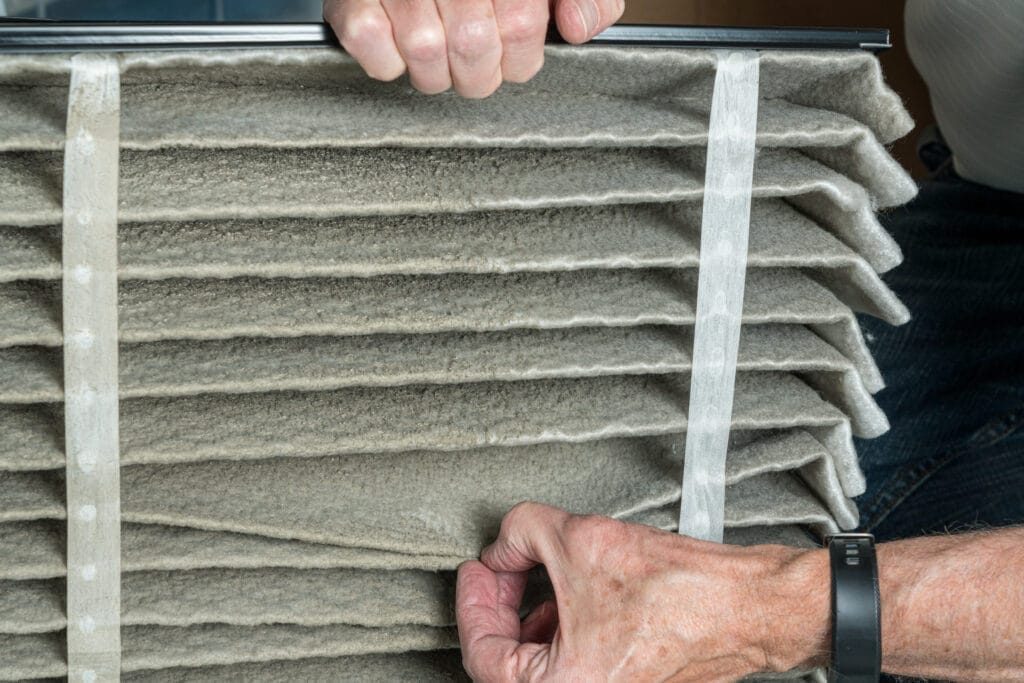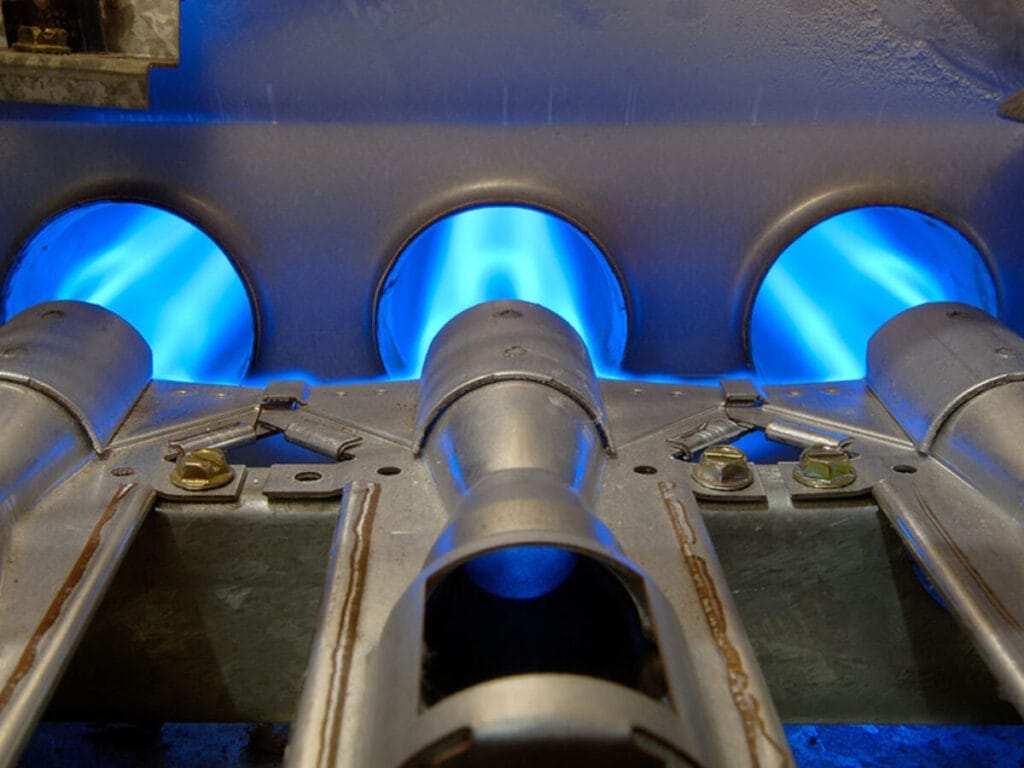
A furnace is an essential component of any home, providing heat and comfort during the cooler months. As a homeowner, it’s crucial to be aware of the different sounds your furnace can make. Some noises indicate normal operation, while others could signify potential issues. Understanding these sounds can help you maintain your furnace and ensure it operates efficiently.
A furnace that is making strange noises can be a cause for concern, as it might indicate a serious problem that requires immediate attention. In this article, we’ll explore the common reasons why your furnace might be making noises, help you identify if they’re normal or not and give you some tips on how to deal with potential problems that might need your attention.
Normal Furnace Noises When Running
It’s natural to hear some sounds from your furnace. These normal furnace noises include a gentle hum or a soft blower sound. Typically, these sounds indicate that your furnace is functioning as it should. Regular maintenance can keep these noises at a minimum.
Types of Weird Noises Your Furnace Might Make
If you ever find yourself asking, “Why is my furnace making weird noises?”, it’s important to investigate further. Unusual sounds can often point to underlying issues. Here are some specific noises to be aware of:
- Rattling: This could be a sign of loose parts or screws in the furnace. However, it could also mean there’s a leak in your heat exchanger, which can be dangerous.
- Screeching or Squealing: These sounds usually indicate an issue with the blower motor or belt.
- Popping or Banging: If you’re hearing these sounds, it might mean that there are duct problems or ignition issues.
- Howling: This sound usually linked to airflow problems.
- Clicking: Clicking sounds can be generated by ignition or electrical problems.
The Reason Why Your Furnace Is Making Strange Noises
1. Loose Parts
The most common reason for a rattling noise is loose parts. Over time, the screws, bolts, and other components inside your furnace can become loose due to the regular vibrations of the system. If left unchecked, these loose parts can cause further damage to your furnace.
2. Issues with the Blower Motor or Belt
A screeching or squealing noise usually points to an issue with the blower motor or belt. This could be due to a lack of lubrication, a worn-out belt, or a failing motor.
3. Problems with the Ductwork
Popping or banging noises often indicate a problem with the ductwork. This could be due to thermal expansion — when the ductwork expands and contracts due to changes in temperature.
What to Do About It?
While some noises are rather harmless, there are some furnace noises you shouldn’t ignore. Some issues such as rattling or squealing could be fixed with a simple tightening of screws or lubrication of parts (although these can also hide serious problems), while rattling, screeching or thumping should trigger an immediate call to a technician to prevent further damage.
The intensity of the sounds can also be a good indicator of how serious the problem is. A furnace making loud noises is seldom a good sign. Loud banging, squealing, or grinding can suggest serious mechanical issues, such as motor failure or belt wear. Immediate attention is recommended to prevent extensive damage. Let’s investigate each one.
Banging noises can be caused by delayed gas ignition or mobile ducts. Both scenarios warrant professional attention to avoid further damage.
Popping sounds often arise from the expansion and contraction of metal ducts. While occasionally normal, if persistent, it might indicate ductwork problems needing professional assessment.
Howling sounds typically stem from airflow issues. This could be due to blocked vents or dirty filters. Ensuring consistent airflow can often resolve this problem.
Hearing sounds as your furnace kicks on? Furnace noises when starting might include a brief whoosh or a click. These sounds generally signify normal ignition. However, if you hear persistent or loud noises, it may indicate an ignition issue and you should call a trained expert. Other clicking noises can also point to a failing thermostat and professional evaluation is also recommended.
Furnace Noises And What They Mean: Guide For Homeowners
If your furnace is making strange noises, it’s more than just an annoyance — it can be a sign of a serious problem. Whether it’s loose parts, issues with the blower motor or belt, or problems with the ductwork, it’s important to address these issues promptly to ensure the longevity and efficiency of your furnace.
If you’re in the Denver area and are having trouble with your furnace, consider reaching out to Top Shelf Electric, Heating, & Plumbing. As Denver furnace experts, they have the knowledge and expertise to diagnose and fix any furnace-related issues you might have. Don’t let a noisy furnace disrupt your comfort; get in touch with Top Shelf Home Service today.

